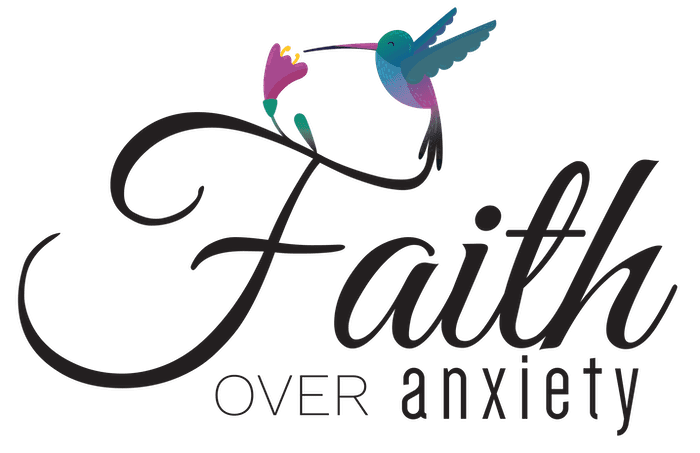I think one of the most overlooked and undervalued treatments for depression and anxiety is simply maintaining a proper diet.
I’m honestly surprised at how few of my therapists and psychiatrists have gone over food basics with me all these years.
In fact, the only time I did get any literature or handouts on nutrition is when I demanded alternatives to medication.
I told my psychiatrist that there had to be another way, another set of strategies I could use to manage my symptoms. I just needed someone to break it down to me.
When I met with the therapist she recommended, a whole new world of treatment became available to me… through food. The therapist gave me a few food cheat sheets and explained the science behind eating the right foods at the right time.

So I resolved to revamp my grocery list and limit my takeout and fast food orders. I had already gotten myself into a good exercise routine, so I was eager to see how I would fare with the food changes.
Implementing these changes in my diet has helped me in ways I couldn’t have imagined.
In the early years following my hospitalization for depression (check out my story), I used to attend natural health fairs around Central Florida in an effort to be healthier. I met one or two holistic health practitioners who raved about veganism and how good it was for you. And I had a childhood friend who sold me on the lifestyle.
So I went out and bought a book that was backed by the Physician’s Committee for Responsible Medicine (PCRM). My mother and I read it together, and we were impressed. We started using the recipes suggested in the book, and we reaped some great benefits.
My mother lost weight, and I became empowered by my new plant-based lifestyle. I bought a manual leaf juicer and a veggie juicer. I even started a couple of square foot garden plots in my parent’s back yard and grew all sorts of fruits and veggies. I was a strict vegan from 2010-2014, a bonafide fanatic.
In addition to no meat or dairy, I’d do super restrictive cleanses every now and then, like the Master Cleanse lemonade diet for 14-20 days at a time to cleanse my system.
I didn’t bother with multi-vitamins, and sometimes I ate more sugar than necessary because I reasoned that sugar was plant-based too.
But I didn’t realize there was significant research that supported the idea that anxiety sufferers should incorporate meat into their diets.
When I started working my corporate job in 2014, the veganism flew out of the window because the office culture was a junk food trap. Everyone was restricted to their cubicles and we were all stressed. People brought in brownies, cupcakes, donuts, greasy meats, and carb-packed dishes for any and every occasion.
I found myself gorging on snack machine food every time I got a break. I gained a considerable amount of weight in my first year and I was mentally unwell most of the time. I was addicted to sugar and processed foods and drank very little water on a daily basis.
But I still hadn’t connected the dots to see that my food choices were preventing me from achieving my optimum mental health. I didn’t take the power of nutrition seriously at all.
I thought, “So what if I’m missing some nutrients. Having them isn’t going to change my anxiety or depression drastically. The issues I’m dealing with are too deeply ingrained at this point.”
I was so wrong!
So I’ve compiled a list of basics that I think every anxiety and depression sufferer should know.
(You can also sign up to receive my free Anxiety and Depression Nutrition Toolkit to get your diet in order with little effort. I have it pulled up on my phone every time I go to the grocery store, and it really helps me plan from week to week. Being healthy has never been so easy!)

TAKE CHARGE OF YOUR FOOD AND TAKE CHARGE OF YOUR MIND!
Sign-up to receive a free printable Anxiety and Depression Nutrition Toolkit which includes:
The Ultimate Anxiety & Depression Grocery List
A Food/Mood journal with daily reflection questions
2 Extensive Vitamin & Supplement Fact Sheets
You have Successfully Subscribed!
1) Remove Sugar, Alcohol, Processed Foods, Caffeine, and Gluten
- I’ve said it before, and I’ll say it again: Sugar is the devil. It’s a major cause of inflammation throughout the body, and researchers have found a strong link between inflammation and depression. It depletes your body of vital nutrients it needs for optimal functioning. It causes spikes in your blood sugar, which ultimately results in a crash and burn. The more you consume sugar, the harder it is for you to break the habit, creating a terrible cycle where mood instability is a constant.

- Alcohol can exacerbate insomnia and decrease serotonin once you come down from your buzz. Like sugar, it also depletes your body of the vital nutrients your body needs to fight mood disorders naturally.
- Processed foods like cereals and fried foods can also cause blood sugar spikes and lead to unwanted inflammation.
- Caffeine is the absolute worst thing to consume if you want to avoid intense anxiety, especially if you have a history of panic attacks or insomnia. Caffeinated coffee and teas can cause jitters and intensify anxiety for hours.
- Lastly, not everyone is sensitive to gluten, but studies have shown that gluten and mood issues are related. Gluten-free pasta, rice, and bread are all good alternatives to normal gluten-containing starches.
2) Eat Grass-Fed Beef, Wild Caught Fish, and Free-Range Poultry with no Hormones/Antibiotics
In her book The Anti-Anxiety Diet Solution, Trudy Scott, Certified Nutritionist, explains that if you’re an anxiety sufferer, you should strongly consider eating meat:
“Although protein is also found in dairy and to a lesser extent in legumes, grains, nuts, and seeds, the most concentrated forms (and in my experience the most beneficial for mental health) are meat, poultry, eggs, and fish.”
- Grass-fed red meat is a good source of vitamins B6, B12, D, Omega-3 fatty acids, and zinc – all important for regulating mood.
- Fish, poultry, and eggs are also packed with numerous vitamins and minerals like iron and L-lysine in addition to Vitamin D, Omega-3 fatty acids, zinc, biotin, etc.
*If you’re vegan or vegetarian, you can still get these nutrients with supplements, but eating meat is considered more effective for treating anxiety and depression.*
3) Eat Organic Fruits and Vegetables
Green leafy vegetables like kale, spinach, and collard greens are excellent sources of magnesium, vitamins K and C, and are full of rich antioxidants which all help to balance mood.
If you’re not a salad eater, these blend really well in smoothies and don’t have any funny aftertastes.
Other vegetables are also recommended like broccoli, cauliflower, asparagus, green beans, carrots, potatoes, beets, squash, etc.
Low sugar fruits like berries, cantaloupe, avocados, watermelon, and apples are also great sources of vitamins and antioxidants.
All fruits are pretty amazing, but being careful not to consume only the most sugary fruits is important. Sugar is sugar.
4) Drink Plenty of Water and Herbal Teas
Water is so key to maintaining good health. Just like a plant, we must have water in order to survive.
Staying hydrated staves off feelings of fatigue, helps keep our digestive systems running smoothly, and carries nutrients to all of our organs, including our brains.

Drinking the recommended eight glasses a day is a must.
Also, drinking a good herbal tea can help you increase your water intake while delivering calming and anti-inflammatory properties. Chamomile and Valerian root teas are great for bedtime because they have a natural sedative effect.
Turmeric tea is great for reducing inflammation and is known for boosting your overall immune system and reducing anxiety and depression symptoms.
For more information on beneficial teas, check out this link from Healthline.
5) Take Whole Food Based Vitamin and Mineral Supplements
I’m a huge fan of vitamin supplements because I don’t always stick to the script with my diet, and I want to make sure I’m getting an abundance of every key vitamin and nutrient I need. As long as you’re staying away from the foods and drinks on the “no-no” list, a good multivitamin can be a wonderful addition to your routine.

It’s suggested that people who have Generalized Anxiety Disorder (GAD) take a whole food multivitamin. B Complex vitamins are also very beneficial when it comes to mood regulation.
Specific vitamins and minerals have also been studied for the treatment of certain disorders:
- Vitamins A, B6, B12, C, D, E – helps in treating both anxiety and depression
- Magnesium– helps in treating OCD, General Anxiety, and Depression (I call my Magnesium supplement my “chill pill” because it’s a natural muscle relaxant and helps me fall asleep pretty quickly. It’s also good for the heart, regulating blood sugar, assimilating other vitamins and nutrients into the bloodstream, and reducing PMS symptoms)
- Zinc– helps in treating OCD, Panic Attacks, and Generalized Anxiety
- Omega -3 fatty acids– Significant for overall brain health, depression, and anxiety
- Inositol– helps in treating Panic Disorder, Agoraphobia, Depression, OCD
Again, I can honestly say that I have noticed some fantastic improvements in my mood since I changed my eating habits, and I’m confident these suggestions will work for others.
As with any other change to your diet, it’s a good idea to consult your doctor before experimenting. Most of the foods and supplements I’ve included are generally safe, but it’s always good to get clearance before trying anything new.
If you suspect you’re deficient in any key vitamins or nutrients, a certified nutritionist can help you determine what you’re missing and need a supplement for.
*Some foods for honorable mention include: Organ meats, organic bone broths, organic nuts and seeds, sauerkraut, and legumes*
I hope this was helpful! If I missed anything, let me know in the comments.
Sincerely,
Alexia





0 Comments